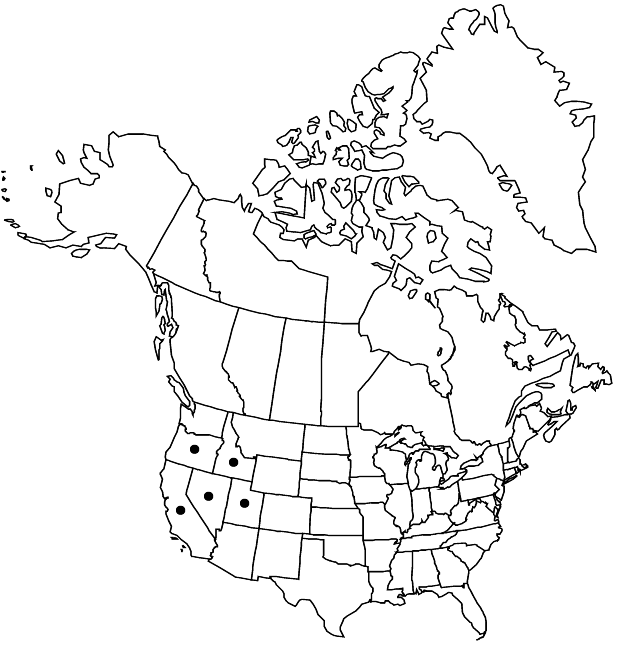Difference between revisions of "Dodecatheon pulchellum var. shoshonense"
Sida 22: 864. 2006 ,.
FNA>Volume Importer |
FNA>Volume Importer |
(No difference)
| |
Revision as of 20:29, 24 September 2019
Plants glabrous. Leaves 4–15(–22) × 0.5–3.5 cm; blade oblanceolate to elliptic or spatulate. Pedicels glabrous. Flowers: calyx glabrous; corolla tube yellow or white with or without reddish, thin, wavy ring, lobes magenta to lavender, (8–)10–20 mm; filament tube yellow, (0.7–)1–2.5(–3) mm; anthers 3.5–5 mm; pollen sacs yellow, connective yellow basally, maroon apically.
Phenology: Flowering late spring–summer.
Habitat: Moist, alkaline, inland, meadow communities
Elevation: 700-2400(-2800) m
Distribution

Calif., Idaho, Nev., Oreg., Utah.
Discussion
Variety shoshonense is found in widely scattered, nearly always alkaline meadows mainly in the valley bottoms of the northern Mojave Desert and the Intermountain West. Populations occur from Inyo and Mono counties, California, across Nevada to western Utah. To the north, it occurs from Malheur County, Oregon, across the Snake River Plain of Idaho to Bannock County, with some populations extending northward in the low valleys of Custer and Idaho counties. Large-leaved plants occur on streamside cliff faces in the Three Forks of the Owyhee area in Oregon. A population from 2800 meters in the House Range in Millard County, Utah (subvar. atwoodii), is here assigned to var. shoshonense. Apparently, the plants are locally abundant at the bases of limestone cliffs.
Selected References
None.